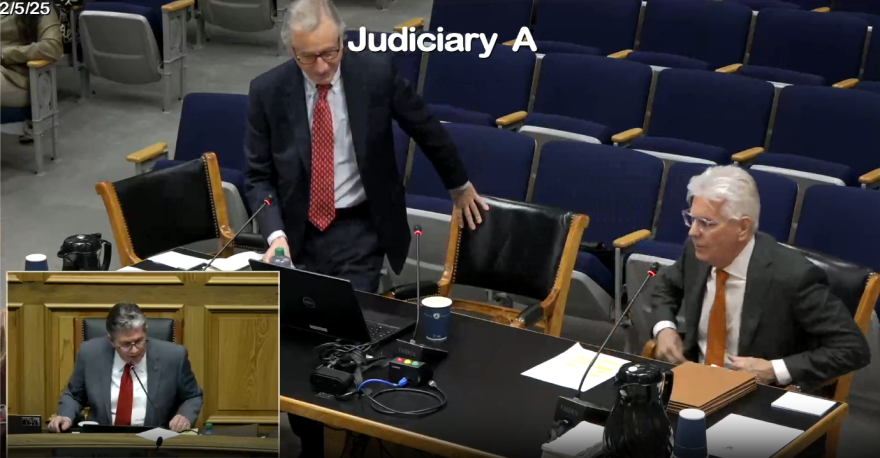Not many news headlines surfaced after the testimony of former Missouri State Insurance Commissioner Jay Angoff, on February 5, 2025, before the Louisiana Senate Judiciary A Committee. But consumer advocates say the testimony deserved more news coverage than it garnered. Angoff’s description of what’s causing Louisiana’s insurance crisis: it is largely due to severe weather and industry-friendly regulations, not lack of competition or low profits.
That assessment is directly at odds with repeated statements by Insurance Commissioner Tim Temple. Just this week Temple released a statement which pointed to positive trends coming from his package of property insurance reform bills approved last year by the state legislature. “We’ve had insurance companies file for rate decreases for 2025 and that is largely attributable to the reform as well as just the overall reinsurance market.” And Temple says the Department of Insurance has licensed 10 new insurers since the start of last year’s session.
Temple even told the Louisiana Radio Network that while there’s still a ways to go, Louisiana is seeing benefits of reform faster than one of its Gulf Coast neighbors. “Florida, who had a property crisis of their own, that they’ve dealt with over several special sessions, it took over a year and a half before they started seeing the impact. Temple also added that another factor in the change in the property insurance trend is the fortified roofs program.
A Different Perspective
But Angoff ’s testimony last month paints an entirely different picture of Louisiana’s insurance crisis. Before speaking with state senators on the Judiciary Committee, Angoff says he reviewed data provided by insurance companies to the National Association of Insurance Commissioners (NAIC). Angoff stated that contrary to Temple’s assessment, Louisiana’s personal auto insurance market “is squarely in the national mainstream,” not non-competitive, a claim used to support insurance deregulation legislation to attract new companies to the state.

Temple has also repeatedly insisted that insurers in Louisiana are struggling to turn a profit. But Angoff pointed to data that suggested otherwise. Loss ratios, for example, measure the percentage of loss an insurance company pays out, compared to the premium it collects. The lower the ratio, the more the profit. Angoff said Louisiana’s loss ratios were 9% better than the national average in 2023, and at least 5% better than each of our neighboring states which include Arkansas, and Texas.
Despite those facts, Louisiana still ranked third in the country in 2024 for most expensive states for car insurance. That’s according to consumer financial services company Bankrate, which collected data from Quadrant Information Services. And for Bankrate’s March 2025 report, Louisiana remains third, with the average car insurance costing $3,998 a year.

Louisiana Car Insurance Monthly Rates by ZIP Code - the higher the level of red the higher insurance rates.
Temple, on the other hand, is now emphasizing a slowing of rate increases. He says in 2024 approved insurance rate increases averaged 6.6%. That’s compared with 14% the previous year and 16.2% in 2022. Then, for January and February of this year, Temple says his department approved seven rate decreases for residential insurance customers. He says those reductions ranged from 4% to 11%. Those decreases, he adds, are more than the previous three years combined.
Moving forward, the focus for the fast-approaching regular legislative session in Baton Rouge, says Temple, needs to be on tackling both private passenger and commercial auto rates. The regular session begins on Monday, April 14, 2025. That is when we are likely to hear more from consumer advocacy groups, like Real Reform Louisiana, which denies it accepts funding from personal injury lawyers.
The group cites testimony by Commissioner Temple, video of which Real Reform recently posted on its Facebook page, before the Joint Insurance Committee on October 11, 2024. Temple testified that, “Our role is not to look and determine whether we think it’s [insurance rates] right or high.” The consumer group also posted the video on its X social media site, as well.

Temple is correct. Louisiana law allows the commissioner to reject an insurance rate that is too low. But he does not have the sole authority to reject a rate seen as too high. And a report by the Harvard School of Business stated that higher [insurance] premiums are being charged in states where regulators apply less scrutiny to requests for rate increases.”




